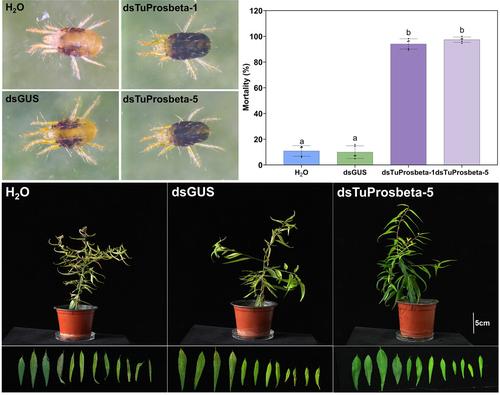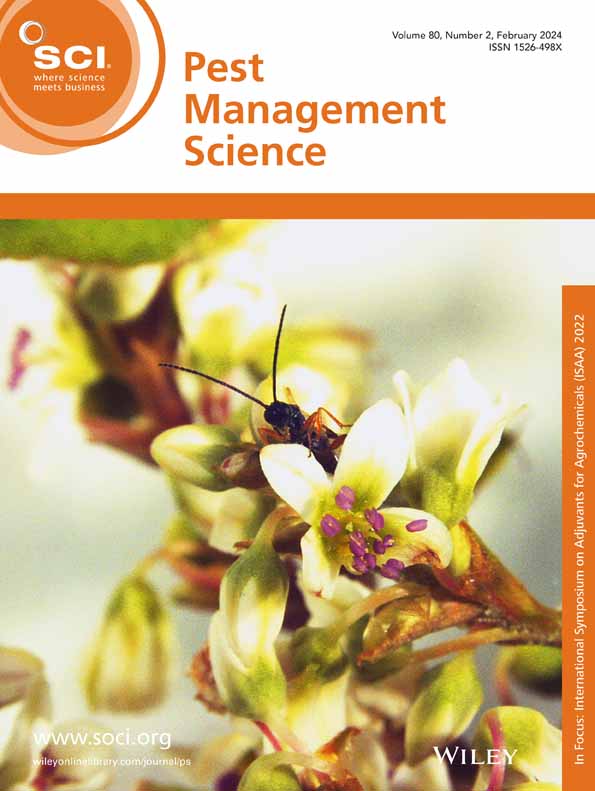Target gene selection for sprayable dsRNA-based biopesticide against Tetranychus urticae Koch (Acari: Tetranychidae)
Abstract
BACKGROUND
Because of the excessive use of synthetic chemicals, the two-spotted spider mite, Tetranychus urticae Koch, a highly polyphagous pest, has developed comprehensive resistance to a broad spectrum of pesticides with diverse modes of action, raising severe concerns over agroecosystems and human health. To resolve this emerging issue, we initiated a project to develop double-stranded RNA (dsRNA)-based biopesticides against T. urticae, aiming for a species-specific and sustainable pest management alternative.
RESULTS
To examine the uptake of dsRNAs using the egg-soaking delivery method, we fluorescently labeled extraneous dsRNAs, and later showed that T. urticae dsRNAs can permeate through eggshell in a time-dependent manner within the first 24 h. For target gene screening, silencing of Prosbeta-1 and -5 resulted in the highest mortality (>90%) and a dark body phenotype in T. urticae. Notably, each target gene was effective in both avermectin laboratory susceptible and field resistant populations. As such, Prosbeta-5 was selected as the candidate target gene for subsequent spray-induced gene silencing (SIGS). After two rounds of spray at day 5 and day 12, SIGS led to a substantial suppression of T. urticae populations (>90%).
CONCLUSION
Our combined results suggest viable molecular targets, confirm the feasibility of SIGS against T. urticae, and lay the foundation for the development of dsRNA-based biopesticides to control this devastating pest. © 2025 The Author(s). Pest Management Science published by John Wiley & Sons Ltd on behalf of Society of Chemical Industry.



 求助内容:
求助内容: 应助结果提醒方式:
应助结果提醒方式:


